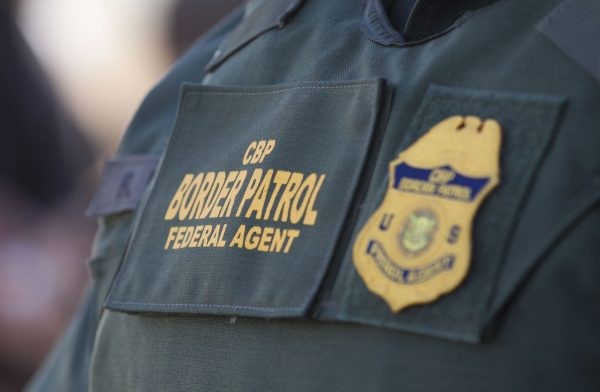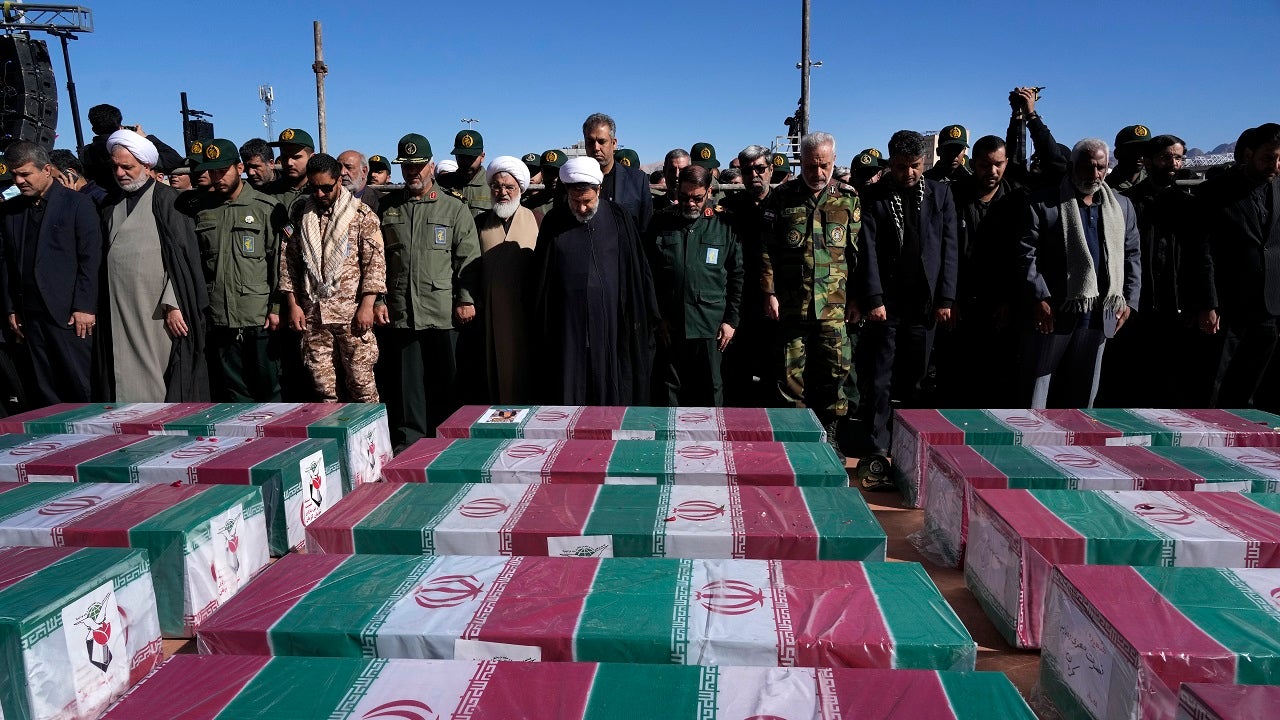
Iran announced Thursday that it has identified the alleged mastermind behind dual suicide bombing attacks that left nearly 100 people dead at a recent memorial for late Gen. Qassem Soleimani, who was killed years ago by a U.S. drone strike.
The IRNA news agency carried a statement by the intelligence ministry saying the main suspect who planned the Jan. 3 attack in Kerman, a city southeast of the Iranian capital of Tehran, was a Tajik national known by his alias Abdollah Tajiki.
Tajiki reportedly entered the country in mid-December by crossing Iran’s southeast border, and left two days before the attack, after making the bombs.
One bomber first detonated his explosives at the ceremony in Kerman, then another attacked 20 minutes later as emergency workers and other people tried to help the wounded from the first explosion, according to The Associated Press.
YEMEN’S IRANIAN-BACKED HOUTHIS LAUNCH LARGEST RED SEA DRONE AND MISSILE ATTACK TO DATE
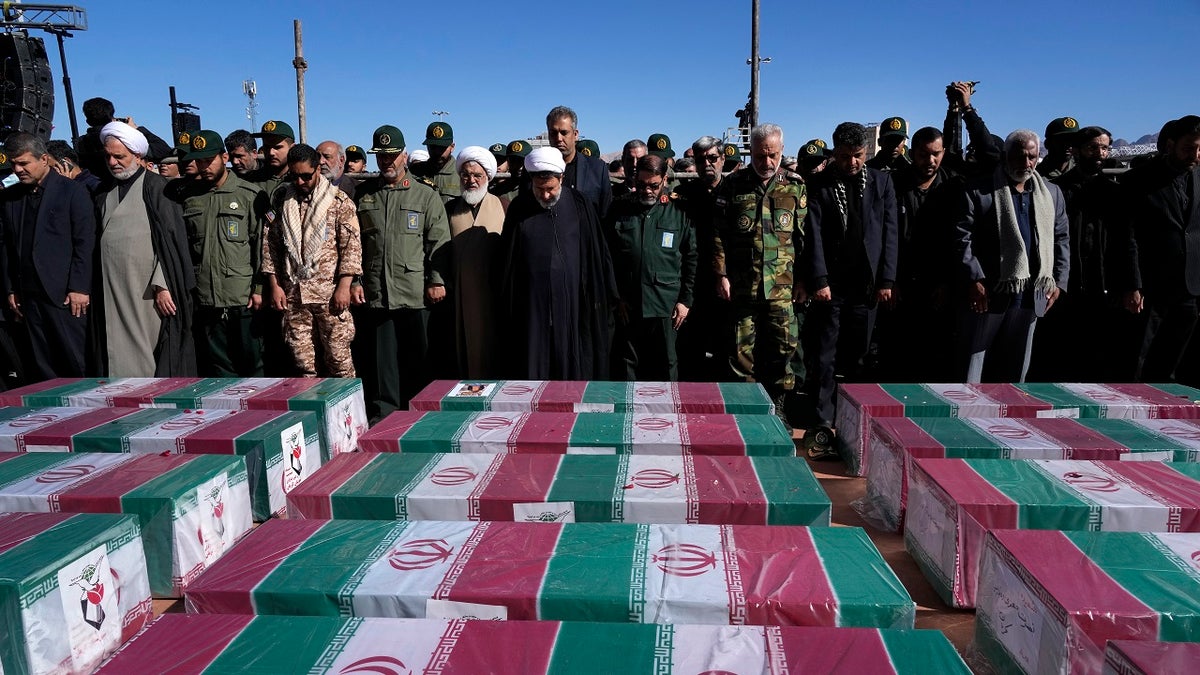
People pray over the flag-draped coffins of victims of the Jan. 3 attacks during their funeral ceremony in the city of Kerman, Iran, on Friday, Jan. 5. (AP/Vahid Salemi)
The report identified one of the bombers by his family name of Bozrov, saying the man was 24 years old and had Tajik and Israeli nationality. It said he also arrived in Iran by crossing the southeastern border after months of training by the Islamic State terrorist group in Afghanistan.
The report added that authorities were still trying to identify the second suicide-bomber while 35 other people have been taken into custody in relation to the attacks.
IDF UNCOVERS EVIDENCE OF HAMAS DEVELOPING PRECISION MISSILE CAPABILITIES WITH IRAN’S HELP
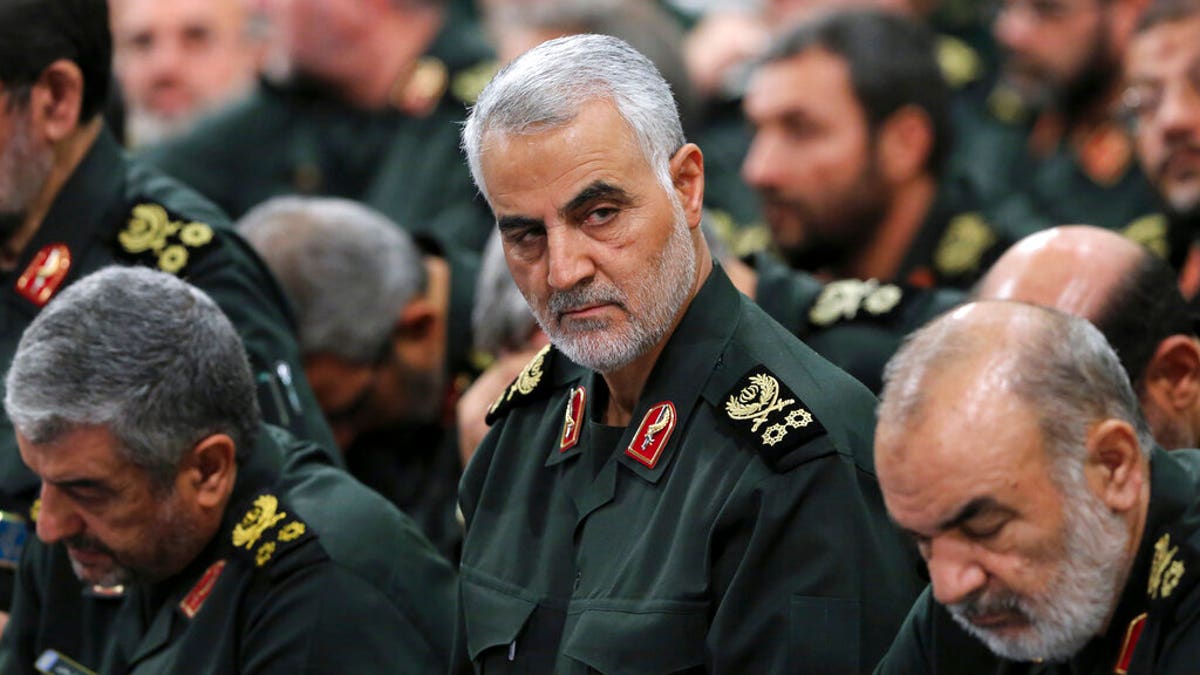
Former Revolutionary Guard Gen. Qassem Soleimani, center, attends a meeting in Tehran, Iran, in September 2016. (Office of the Iranian Supreme Leader via AP, File) (AP)
As of Thursday, the death toll from the attack is 94.
ISIS last week claimed responsibility for the blasts. A statement from the terrorist group published to Telegram named operatives Omar al-Mowahid and Sayefulla al-Mujahid as the suicidal attackers behind the “dual martyrdom operation.”
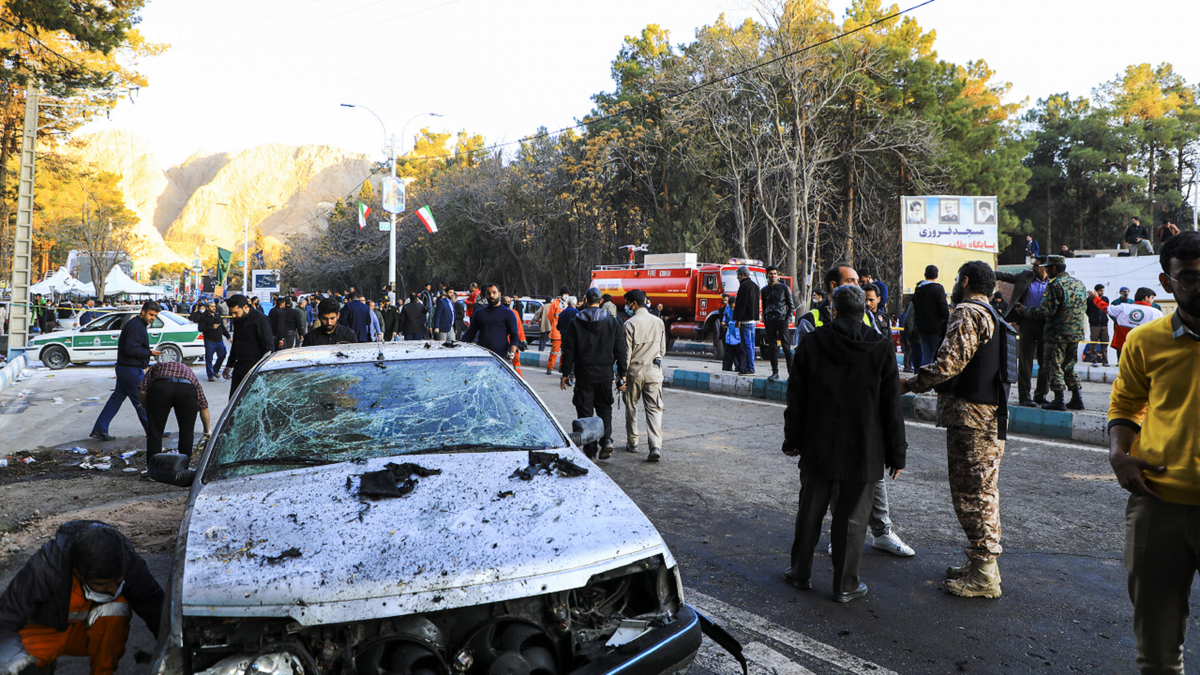
People gather at the site of an explosion in the city of Kerman, Iran on Jan. 3. (Sare Tajalli/ISNA/AP)
CLICK HERE TO GET THE FOX NEWS APP
Soleimani, the head of the Islamic Revolutionary Guard Corps Quds Forces, was killed in a Jan. 3, 2020, U.S. strike in Baghdad, days after Iranian-backed militia supporters stormed the U.S. Embassy in Iraq.
Fox News’ Timothy H.J. Nerozzi and Peter Aitken contributed to this report.


